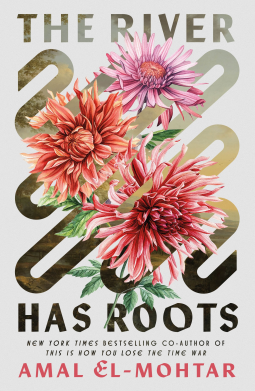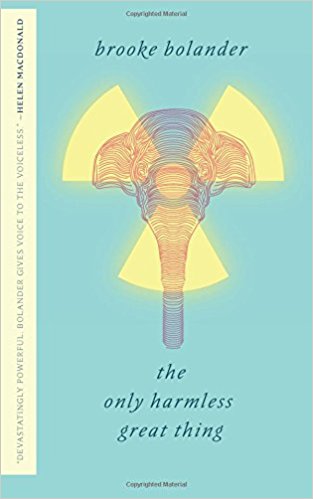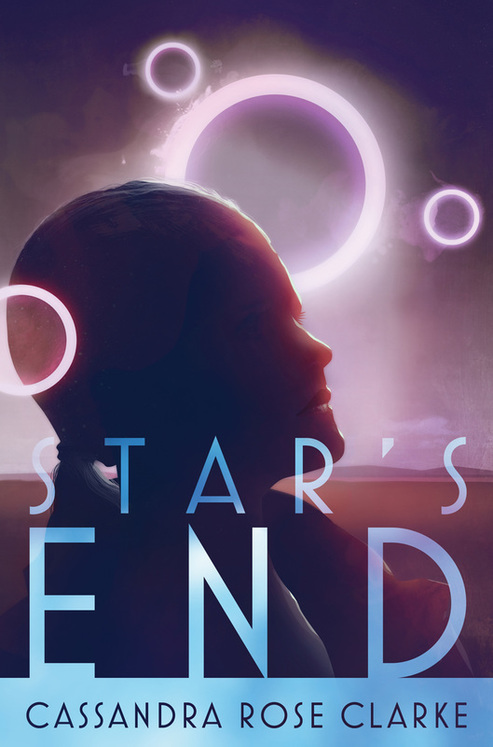Book Review: The River Has Roots, by Amal El-Mohtar

The novella is a retelling of a reasonably well-known fairytale murder ballad, so alert readers may anticipate some of the story beats. There are two sisters, and a suitor, and a warning from beyond via music. But even if a reader has an idea of where the story is going, there are bends in this river of a plot.
Book Review: The Only Harmless Great Thing by Brooke Bolander

Brooke Bolander jumps from stories to novellas with The Only Harmless Great Thing, her #Tordotcompublishing novella. The novella is a strongly affecting and moving story that proves that her emotional strengths in reaching an audience do translate from her short stories to novella length. Brooke Bolander first came to my literary attention with “Our Talons can crush Galaxies”, her Nebula and Hugo nominated story in Uncanny magazine that mixed Gods, revenge and a very sharp, short package. When I heard that Bolander was writing a novella that was an alternate history that involved the radium girls, a part of history I only had the vaguest notions about, I was thus intrigued. What could and would the author do at novella length in an alternate history? I was not sure, but I wanted to find out.
Month of Joy: La Alegría del Lenguaje by Cassandra Rose Clarke

A year ago, I decided to embark on a not-exactly-new endeavor: teaching myself Spanish. I say not-exactly-new because I had attempted it before with a dubiously-acquired copy of Rosetta Stone, which I used for about a month in 2013 before giving up. My failures with Rosetta Stone hadn’t killed my desire to learn Spanish, though. Spanish is a language I grew up around without ever actually learning—I’m from South Texas and now live in Houston, so it’s been a part of the sonic and cultural landscape my entire life. However, I went a Classics route with my formal language learning in high school and college (Latin and Ancient Greek, respectively) and so Spanish was firmly lodged in a strange space of being both familiar and unknown. This frustrated me. How could I see and hear a language almost every day and not understand it?
Guest Post: The Importance of Words by Jeffery Viles

Words are not just important, they are the key invention of Homo sapiens, which separates us by miles from the other animals here on planet earth. With our complex languages and hundreds of thousands of words, we describe things we can see and touch and things we only imagine. What is in front of us and what is not. The trick is to string words together in clear sentences that tell a story, an imaginative vision, or a descriptive picture. For me, the challenge is to use surprising and creative language within those sentences to catch the reader’s attention — to make the effort an entertainment for both writer and reader. Lots of species communicate non-verbally. Humpback whales sing to each other, lions roar meaningfully, gorillas thump their chests, birds trill away. But these and other animal communications are only basic modes of signaling. No other species is equipped to form words which can describe, hurt, make pictures, elate, curse, relay emotions, instruct, excite, and all the other things that words can do. “But,” you ask, “aren’t we the only species that has sex just for fun and not necessarily to procreate? Doesn’t that also distinguish us from the other animals?” Tell that to the Bonobo monkeys. “But we use tools and have an opposable thumb.” Yes, we do. And so do Chimpanzees, our nearest relative.
Around the Podosphere #13: Podcasts of Note for June 24
It’s been a long time since I’ve posted one of these. Since the Skiffy and Fanty crew collectively listen to more podcasts than there are episodes of our show (totally scientific, promise), it’s about time we brought the Around the Podosphere back to share some of the goodness worming its way into our ears. So, here goes:
Languages Matter: Some Thoughts on Language and Dialect

I want to expand on what I have written in my essay, “Languages, Dialects and Accents: Why Our Voices Matter.” Much has been said about the use of dialect in science fiction and the outcry that follows. I would like to see more of such discussions because we have been shying away from issues that really matter to us. Perhaps, it is the shift from white Anglo science fiction to a more international/world science fiction that has started the ball rolling. For a long time, the world has been white, male and painfully Anglo-centric, not to mention US-centric. Now we have new voices coming into the song, and some are naturally reacting rather angrily, I would say. Why are we fixating on English – and for that matter, proper grammatical English English? Let’s not bring in the American versus British spelling argument. Let’s talk about English. Why do we insist SFF writers write in English? Probably because science fiction, at the moment, is dominated by the Americans and the British? Bear in mind that science fiction is also written in Mandarin Chinese, Finnish, Spanish, Portuguese, French and Bahasa. Why does English have so much hegemony in the SFF-sphere?

